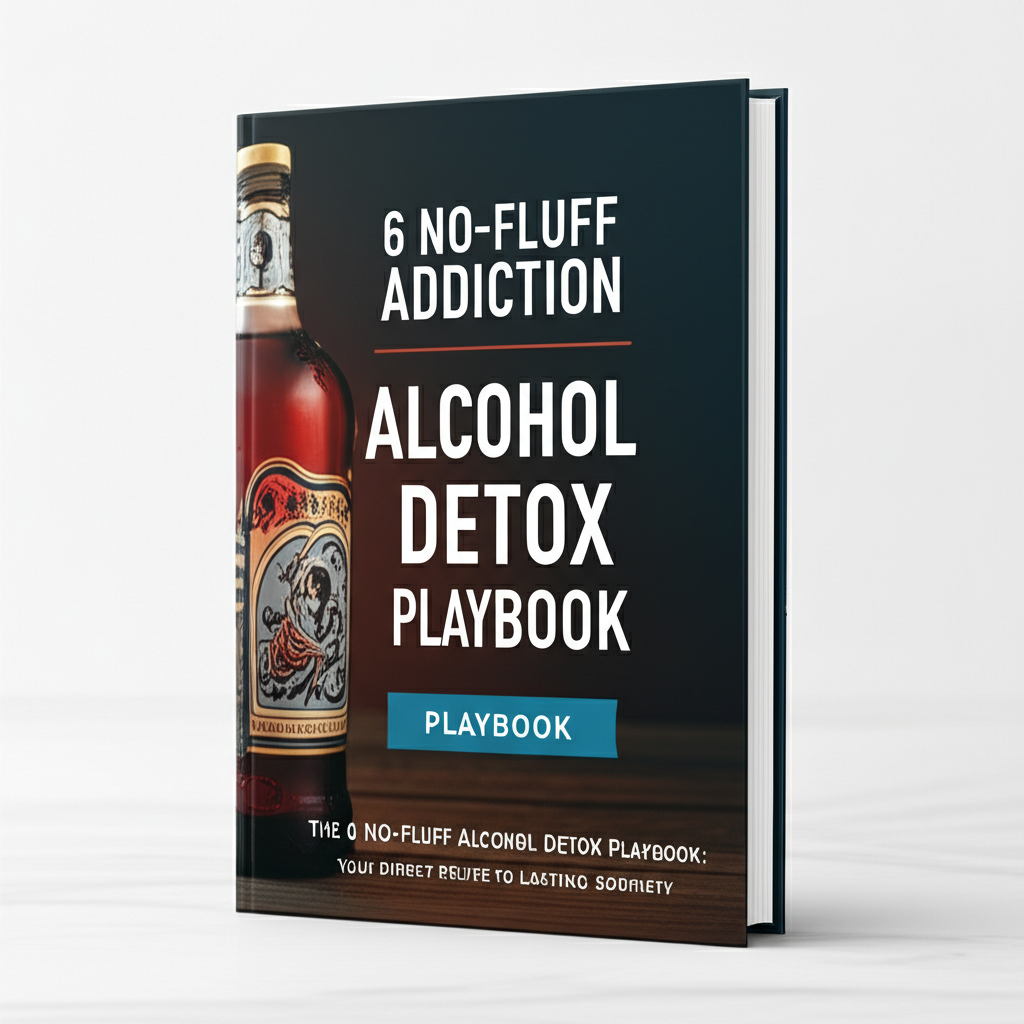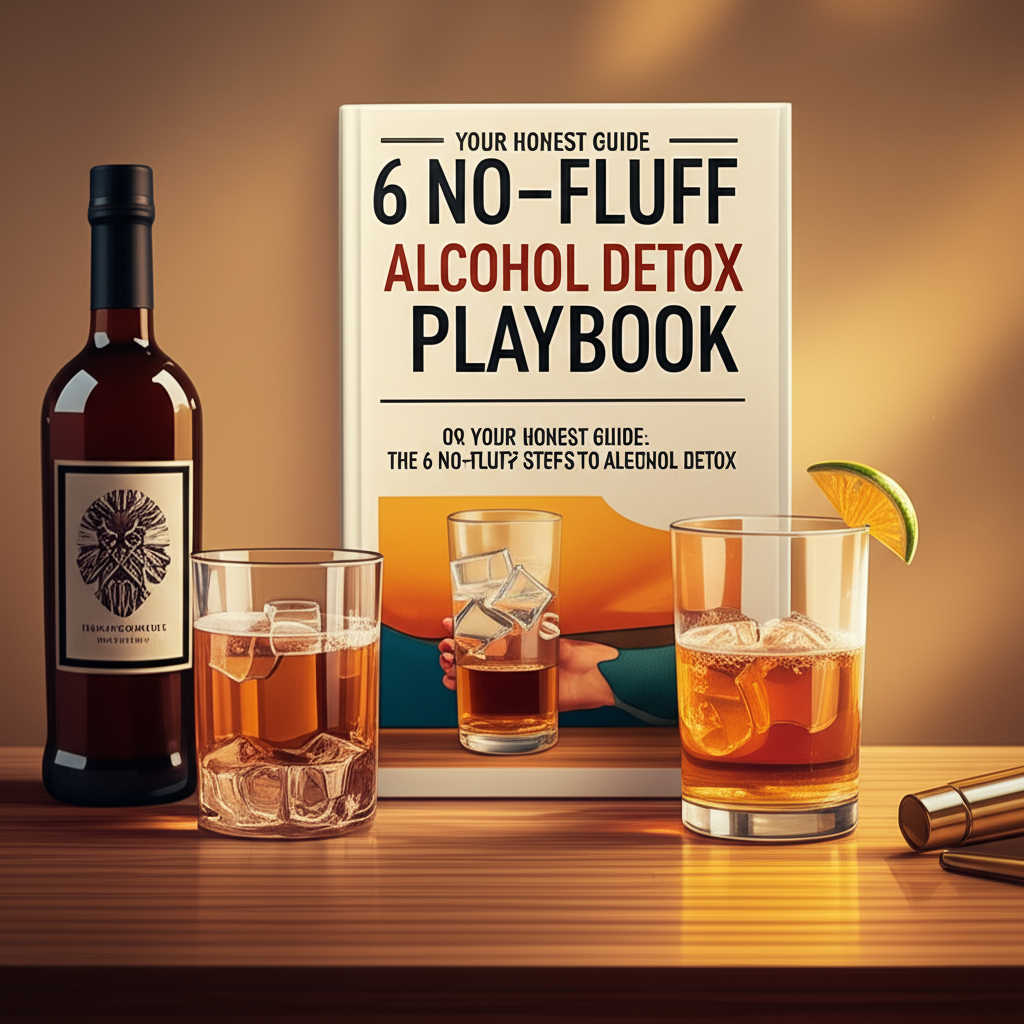The morning light streams through the window, but instead of feeling refreshed, you’re battling a familiar dread. The headache is pounding, your hands are trembling, and the anxiety gnaws at you, a constant companion since the last drink. You’re caught in a cycle, desperate for change, yet terrified of the daunting journey ahead: alcohol detox.
It’s a powerful, overwhelming desire – the wish to break free from alcohol’s grip. You’re not alone. Millions struggle with alcohol use disorder, and the first courageous step towards recovery is often detox. But how do you navigate this challenging terrain safely and effectively? It’s not simply about "stopping cold turkey" – that can be dangerous, even fatal. True, lasting recovery begins with a strategic, supported approach.
This article isn’t just a guide; it’s your beacon of hope. We’ve distilled the complex process of alcohol detox into a clear, actionable framework: The 4 Ultimate Addiction Alcohol Detox Checklist. This comprehensive checklist will equip you with the knowledge, tools, and confidence to embark on your journey to sobriety, transforming fear into empowered action. Are you ready to reclaim your life? Let’s begin.
Understanding Alcohol Detox: More Than Just Quitting
Before diving into our checklist, it’s crucial to understand what alcohol detox truly entails. It’s a physiological process where your body rids itself of alcohol and readjusts to functioning without it. For individuals with alcohol dependence, this process can be uncomfortable, painful, and even life-threatening without proper medical supervision.
What Happens During Detox? The Science of Withdrawal
When you regularly consume alcohol, your central nervous system adapts to its presence. Alcohol is a depressant, slowing down brain activity. To compensate, your brain essentially "ups the ante," becoming overactive to maintain a semblance of normalcy. When alcohol is suddenly removed, your brain remains in this overstimulated state without the depressant to balance it out. This neurological imbalance is the root cause of withdrawal symptoms.
Common alcohol withdrawal symptoms can range from mild to severe:
- Mild: Headaches, nausea, vomiting, sweating, tremors, anxiety, insomnia.
- Moderate: Increased heart rate and blood pressure, fever, rapid breathing, confusion, hallucinations (auditory, visual, tactile).
- Severe (Alcohol Withdrawal Delirium or Delirium Tremens – DTs): Seizures, extreme confusion, severe agitation, high fever, profound disorientation, and potentially cardiovascular collapse. DTs are a medical emergency and can be fatal if untreated.
The onset and severity of these symptoms depend on factors like the duration and intensity of alcohol use, overall health, and previous detox experiences. Symptoms typically begin within 6-24 hours after the last drink, peak around 24-72 hours, and can persist for days or even weeks.
Why Professional Guidance is Crucial: Safety First
Attempting to detox from alcohol alone, especially if you have a history of heavy or prolonged drinking, is extremely risky. The unpredictable nature of withdrawal symptoms, particularly the potential for seizures and DTs, necessitates medical oversight. Professional detox programs offer:
- Medical Supervision: Doctors and nurses monitor vital signs, manage symptoms, and intervene in emergencies.
- Medication-Assisted Treatment (MAT): Specific medications can alleviate withdrawal symptoms, reduce cravings, and prevent dangerous complications.
- A Safe Environment: A structured setting free from alcohol and triggers.
- Emotional Support: Counseling and therapy to address the psychological aspects of addiction.
This leads us directly to the first, non-negotiable item on our checklist.
The 4 Ultimate Addiction Alcohol Detox Checklist: Your Roadmap to Recovery
This checklist is designed to empower you with a clear, actionable strategy for a safe and effective alcohol detox. Each point is a critical step, building upon the last to support your journey to lasting sobriety.
Checklist Item 1: Professional Assessment and Personalized Plan – Don’t Go It Alone
This is the cornerstone of a successful detox. Self-diagnosis and self-treatment for alcohol dependence are incredibly dangerous. Your unique physiological and psychological makeup requires a tailored approach.
What to Expect:
- Comprehensive Medical Evaluation: A doctor will assess your overall physical health, including liver function, heart health, and any co-occurring medical conditions. They’ll ask about your drinking history, previous detox attempts, and any medications you’re currently taking. Blood tests and other diagnostics may be performed.
- Mental Health Screening: Alcohol use disorder often co-occurs with mental health conditions like anxiety, depression, or PTSD. A mental health professional will assess these to ensure they are addressed simultaneously, as they can significantly impact withdrawal and long-term recovery.
- Discussion of Treatment Options: Based on your assessment, the medical team will recommend the most appropriate level of care:
- Inpatient Detox: For severe dependence, a history of complicated withdrawal, or co-occurring medical/mental health issues. Provides 24/7 medical supervision.
- Outpatient Detox: For mild to moderate dependence with strong social support and no history of severe withdrawal. You live at home but attend daily medical appointments.
- Medication-Assisted Treatment (MAT): Medications like benzodiazepines (e.g., Ativan, Valium) are often prescribed to reduce anxiety, prevent seizures, and manage other withdrawal symptoms during detox. After detox, other medications like Naltrexone or Acamprosate may be used to reduce cravings and prevent relapse.
- Personalized Detox Protocol: This plan will detail the medications you’ll receive, their dosages, a tapering schedule (if applicable), and a schedule for monitoring and support.
Key Questions to Ask Your Doctor/Treatment Provider:
- What specific medications will be used during detox, and what are their potential side effects?
- What is the typical duration of the detox process here?
- What support is available for co-occurring mental health issues?
- What happens after detox? What are the next steps for ongoing recovery?
- What are the emergency protocols if I experience severe withdrawal symptoms?
Checklist Item 2: Building Your Support System – A Network for Strength
Detox and recovery are not solitary journeys. A robust support system is vital for emotional resilience, practical assistance, and accountability. This network will be your lifeline during challenging moments and a source of celebration during victories.
Components of Your Support System:
- Medical Professionals: Your detox team, doctors, nurses, and therapists are your primary medical support.
- Family and Friends:
- Communicate Clearly: Inform trusted loved ones about your decision to detox and recovery plan.
- Set Boundaries: Discuss how they can best support you (e.g., no alcohol in the house, avoiding triggering situations).
- Educate Them: Help them understand the nature of addiction and recovery.
- Support Groups: These provide a community of individuals who understand your struggles firsthand.
- Alcoholics Anonymous (AA): A 12-step program emphasizing spiritual growth and peer support.
- SMART Recovery: Focuses on self-empowerment, self-reliance, and cognitive-behavioral tools.
- Refuge Recovery: A Buddhist-inspired program utilizing mindfulness and meditation.
- Consider attending a few different types to find one that resonates with you.
- Therapists/Counselors: Individual or group therapy can help you:
- Address underlying issues contributing to alcohol use.
- Develop coping mechanisms for stress and cravings.
- Process emotions and past traumas.
- Build communication and relationship skills.
- Sober Companions or Coaches: For some, a sober companion can provide intensive one-on-one support, living with you or accompanying you during the initial stages of recovery to ensure sobriety and provide guidance.
Steps to Build Your Support Network:
- Identify 2-3 trusted individuals in your life you can confide in.
- Research and attend a local support group meeting.
- Ask your treatment provider for therapist recommendations.
- Be open and honest about your needs and struggles.
Checklist Item 3: Managing Withdrawal Symptoms and Cravings – Tools for Tough Times
This is often the most feared part of detox, but with the right strategies and medical support, it can be managed effectively. Your personalized medical plan (Checklist Item 1) is key here, but there are also practical steps you can take.
Medical Interventions:
- Benzodiazepines (e.g., Librium, Valium): These are the most common medications used during acute alcohol withdrawal. They help calm the overactive nervous system, reduce anxiety, prevent seizures, and improve sleep. They are typically prescribed for a short duration and tapered off gradually.
- Anticonvulsants (e.g., Carbamazepine): May be used to prevent seizures, especially if benzodiazepines are not suitable or if there’s a history of withdrawal seizures.
- Nutritional Support: Alcohol depletes essential vitamins and minerals, particularly B vitamins. Supplements (e.g., thiamine/Vitamin B1) are crucial to prevent complications like Wernicke-Korsakoff syndrome.
Holistic and Comfort Measures:
- Stay Hydrated: Drink plenty of water, clear broths, and electrolyte-rich beverages (unless medically advised otherwise). Dehydration can worsen symptoms.
- Eat Nutritious, Easy-to-Digest Foods: Focus on bland foods like toast, bananas, rice, and applesauce if you’re experiencing nausea. As you feel better, incorporate lean proteins, fruits, and vegetables.
- Gentle Movement: If medically cleared, light walks can help reduce anxiety and improve mood. Avoid strenuous exercise during acute withdrawal.
- Prioritize Sleep Hygiene: Create a dark, quiet, cool room. Avoid screens before bed. While insomnia is common during detox, establishing a routine can help.
- Mindfulness and Relaxation Techniques: Deep breathing exercises, meditation apps, or gentle yoga can help manage anxiety and restlessness.
- Distraction: When cravings hit, engage in an activity you enjoy: read a book, listen to music, call a supportive friend, or work on a puzzle.
- "Urge Surfing": A technique where you acknowledge a craving without judgment, observe its intensity, and remind yourself that it will pass. Don’t fight it; simply ride the wave.
Practical Tips for Specific Symptoms:
- Nausea/Vomiting: Sip ginger tea, use anti-nausea medication if prescribed, eat small, frequent meals.
- Anxiety/Restlessness: Practice deep breathing, listen to calming music, take a warm bath (if safe).
- Insomnia: Follow sleep hygiene rules, avoid caffeine late in the day, discuss non-addictive sleep aids with your doctor.
Checklist Item 4: Laying the Foundation for Long-Term Sobriety – Beyond Detox
Detox is merely the first step. It cleanses your body, but true recovery is a lifelong process of healing your mind and spirit and building a life free from alcohol. This checklist item focuses on establishing sustainable habits and strategies for long-term sobriety.
Key Elements of a Long-Term Recovery Plan:
- Identify and Address Triggers: What situations, emotions, people, or places make you want to drink?
- Example: Stress at work, arguments with a partner, feeling lonely, seeing old drinking buddies, visiting a bar.
- Develop strategies to avoid or manage these triggers. If you can’t avoid them, practice coping mechanisms.
- Develop Healthy Coping Skills: Replace alcohol as your primary coping mechanism with constructive alternatives.
- Stress Management: Exercise, meditation, journaling, hobbies, spending time in nature.
- Emotional Regulation: Therapy, talking to trusted friends, mindfulness practices.
- Social Connection: Engage in sober activities, cultivate new friendships, join clubs or groups.
- Relapse Prevention Plan: This is a written strategy outlining what you will do if you experience cravings or find yourself in a high-risk situation.
- It includes: Contact numbers for your support network, a list of healthy distractions, reminders of your reasons for sobriety, and steps to take if you relapse (e.g., immediately call your sponsor, go to a meeting).
- Ongoing Therapy and Support Group Engagement: Recovery is an ongoing process. Regular therapy sessions provide continued guidance, while support groups offer sustained peer support and a sense of community. Many people continue attending meetings for years, even decades.
- Healthy Lifestyle Changes:
- Balanced Diet: Fuel your body with nutritious foods to support physical and mental well-being.
- Regular Exercise: Boosts mood, reduces stress, and improves sleep.
- New Hobbies and Interests: Discover fulfilling activities that bring joy and purpose, filling the void that alcohol once occupied.
- Mindfulness and Self-Care: Practice self-compassion, prioritize rest, and engage in activities that nourish your soul.
Important Considerations and Warning Signs
While following this checklist significantly improves safety, it’s crucial to be aware of certain situations:
- Emergency Situations: If you or someone you know experiences seizures, severe confusion, high fever, or extreme agitation during detox, seek immediate medical attention by calling emergency services.
- The Reality of Relapse: Relapse is a common part of the recovery journey for many. It does not mean failure. It’s an opportunity to learn what went wrong, adjust your plan, and recommit to sobriety. The key is to get back on track immediately, communicate with your support system, and seek professional help if needed.
- Self-Compassion: Be kind to yourself. This journey is challenging, and there will be ups and downs. Celebrate small victories and treat setbacks as learning opportunities.
Conclusion: Your Journey to a Brighter Future Begins Now
Breaking free from alcohol addiction is one of the bravest, most transformative journeys you can undertake. It demands courage, resilience, and a strategic approach. Our 4 Ultimate Addiction Alcohol Detox Checklist provides that essential framework, guiding you from the critical first step of professional assessment through the vital process of building a sustainable, sober life.
Remember, you don’t have to walk this path alone. With medical guidance, a strong support system, effective coping strategies, and a commitment to long-term recovery, a life of freedom, health, and fulfillment is not just a dream – it’s an achievable reality.
The power to change is within you. Take that first courageous step today. Your brighter future awaits.








